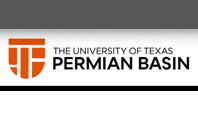Graduate Theses
Date of Award
8-2011
Document Type
Thesis
Degree Name
Master of Science (MS)
Department
Kinesiology
Supervisory Committee Chair
Camille Cassidy, Ph.D.
Second Advisor
James A. Eldridge, Ed.D.
Third Advisor
Patricia Sherblom, Ph.D.
Abstract
Researchers have shown that coaches experience burnout due to role conflict, role ambiguity, and work-family conflicts (Kelley & Baghurst, 2009). The demands of being a coach are many. When a coach has a spouse and children, a work-family conflict can develop. Work-family conflict in coaching is created when the coach cannot effectively balance the time and attention demands for both the job and home. Naturally, consequences arise as a result of this conflict. The purpose of this study was to better understand what consequences exist in the lives of male, collegiate head coaches and to provide suggestions for effectively managing a balance between coaching and family. A semi-structured interview utilized 8 male head coaches at various collegiate levels. Themes discussed in the interview involved what stressors each coach encounters due to work-family conflict, how each coach responds to those stressors, what perceived consequences of work-family conflict exist, and what each coach suggests for managing work-family conflict.
Recommended Citation
Avritt, John T., "Coaching Versus Family: The Consequences of the Work-Family Conflict Among Male Collegiate Head Coaches" (2011). Graduate Theses. 22.
https://falconcommons.utpb.edu/utpb-nur/22

